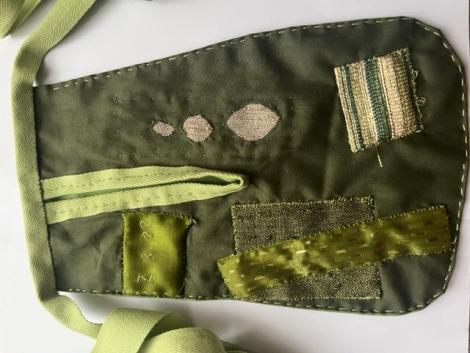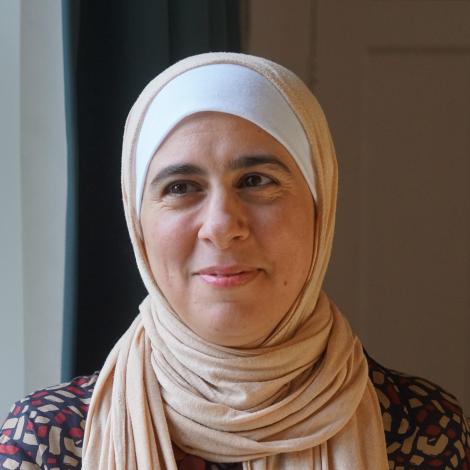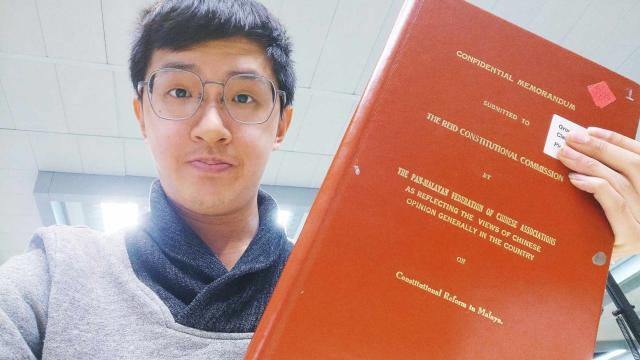
For World Book Day, a St Catharine’s Fellow has created an object inspired by the contemporary and medieval French texts that she and a colleague are researching. Dr Sura Qadiri (2018), the College’s Dawson Lecturer in French, has collaborated with Dr Emily Kate Price from Robinson College to make a hand-stitched tie-on pocket, which takes inspiration from a mix of textual genres and periods.
|
|
|
The pocket is one of a range of hand-crafted objects inspired by literary texts, medieval and modern, which will form the basis of a talk entitled ‘From Text to Textile’ at the Cambridge Festival on 31 March 2022 at 3pm. Book your free ticket now.
Dr Qadiri explains, “As school pupils bring their favourite fictional characters to life today, literary worlds are intermingled: Hermione Grangers sit down to lessons with Alex Ryders, and Gruffalos run around the playground with Cat in the Hats. World Book Day allows us to cross not only the boundary between books and real life, but also barriers between the times and genres that these books represent.
“French writer Marie NDiaye’s Self Portrait in Green (2021) promises from the outset to be an autobiographical text which will tell us something about the life of its narrator. Instead, it features a string of unrelated incidents and stories of women deemed by the first-person narrator to be ‘women in green.’ It is not obvious what these women have in common, what they tell us about the narrator or why they should be associated with the colour green. It is left to the reader to puzzle over this invented category, and ultimately all that we glean is that these women have somehow captured the narrator’s imagination, each for a different reason.
“Dr Price and I have been reading NDiaye’s elusive women alongside medieval French Chansons de toile, songs often said to have been sung by women as they weaved. These songs, many of which are themselves about women sewing and weaving in the private space of their bedchambers, in turn weave different voices together. With various elements in common, but also many elusive and mysterious aspects, the Chansons de toile form another enigmatic collection of women’s lives and experiences.
“Taking inspiration from Barbara Burman and Ariane Fennetaux’s Pockets: A Hidden History of Women’s Lives 1660-1900 (2020), a compelling study of these hand-stitched repositories which examines both pockets and, where possible, their contents for clues about the lives of women who made and carried them to keep valuables and essential items close, we imagine NDiaye’s text as a repository of eclectic stories collected by the narrator which might give us clues about the way she sees and navigates the world. Meanwhile the intimacy of the pocket recalls the interior of the medieval bedchamber as a space for imagining and containing the world.”
The Cambridge Festival talk later this month will showcase this and other hand-crafted objects inspired by NDiaye’s narrative and these medieval songs.
Find out more about studying Modern & Medieval Languages at St Catharine's.





